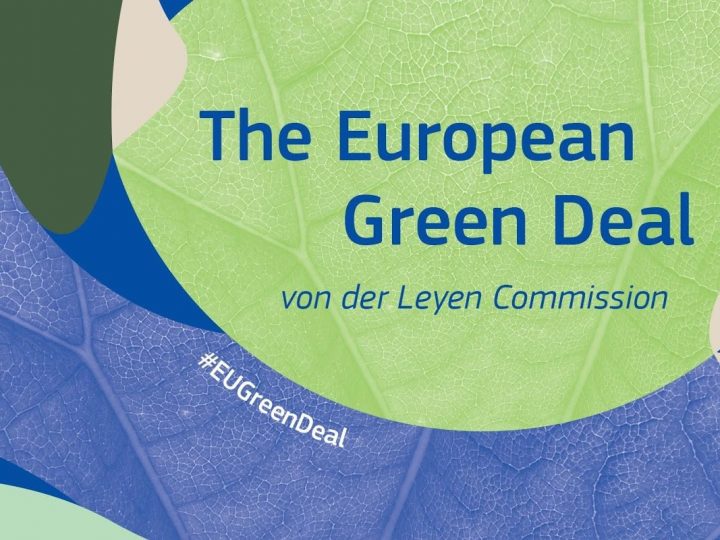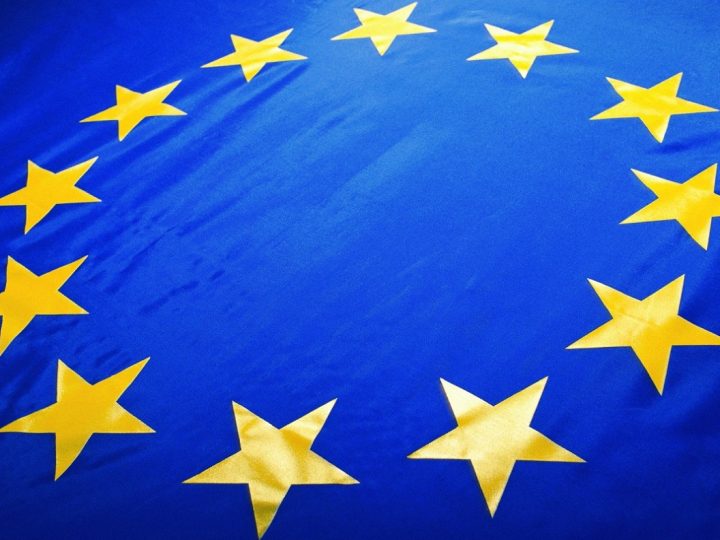This report sets out to give a general idea of the different positions of the British parties on “Brexit” suggesting possible solutions.
The United Kingdom, together with the Netherlands, was the first country to vote for the European elections. The British voted on Thursday 23rd of May. Unlike the Netherlands, exit polls were not released at the voting stations.
The day after the vote the United Kingdom was shaken by the announcement of the resignation of the British Premier Theresa May, overwhelmed by the chaos of “Brexit”. The counting of the ballot papers took place in the evening of Saturday 26th.
Nigel Farage‘s new “Brexit “party triumphed with 31.7 %, according to the data published by the European Parliament, which gave the Lib -Dem (Liberal Democrats) as the second at 18.55%. The third, the Labour Party, dropped to14%, The Greens to 11% and the Tories (the Conservative Party) dropped to 8.7%.
The traditional British parties, particularly the Conservative Party, are facing a period of a heavy crisis coping with the growing consensus for the Eurosceptic “Brexit” Party, founded by Nigel Farage, the leader of the alliance favourable to Britain’s “exit” from the European Union.
Farage’s Party is estimated by polls at between 32 and 27 %, while the Labour Party and the Conservative one are around 20 and 10 % respectively.
Let’s get an insight into the different ideas on “Brexit” that emerged in the British Parliament.
The Conservative Party tends to support a “hard Brexit” in the UK’sabandonment of all EU – institutions and Treaties, whereas there are some supporters of a “soft Brexit” who sustain that the United Kingdom should leave the European institutions but remain, to some extent, within the Single Market, the same situation in which Norway and Switzerland find themselves.
A “soft Brexit” or “Norway plus” would allow the United Kingdom to remain ‘de facto’ in the Single Market without being forced to adopt some particular common policies, as the one of fishing, opposed by many Scottish Conservatives, and to escape the jurisdiction of the Court of Justice in the EU. In reality the EU offered the “Norwegian solution” to the British Government, which however refused, “thanks” to the “European Research Group”, a parliamentaryorganisation
of the Conservative Party pushing to reject any agreement with the European Union.
Within the Labour Party there are some in favour of staying in the EU and of a second referendum.
The Eurosceptics, belonging to the left most wing of the party, are in favour of leaving the EU. Those who belong to this group would like to be part of the Customs Union and to have close ties with the Single Market without being part of it and, at the same time, to have the freedom to decide their own migration and industrial policies, a proposal that is difficult to receive support from the EU(!).
The Democratic Unionist Party (DUP) is a Protestant right wing party in Northern Ireland which has been supporting the May government and in favour of a “soft Brexit” in order to maintain a flexible border between Northern Ireland and the Republic. This is an economic and a political need as both border sides are deeply integrated with a continuous exchange of goods and people. Moreover the creation of an open border was indeed one of the main purposes of the agreements in the 90s.
As a result the DUP voted against the “Brexit” agreement.
The Scottish Nationalist Party(SNP) is in favour of the independence of Scotland with a centre – left political line and pro EU with 35 seats in the Low Chamber, which means in the House of Commons of the British Parliament. Its members are definitely against “Brexit” and want toremain in the Single Market. In addition to this they think that article 50 of the Treaty of Lisbon 1),allowing an “exit” of any member state, should be repealed and “Brexit” should be postponed. Moreover, another referendum would be appropriate in their opinion.
The Lib – Dem (Liberal – Democrats) are strongly against “Brexit” and for a second referendum. .Their slogan is Exit from “Brexit”. In any case the UK should remain in the Single Market for them.
1) Treaty of Lisbon Art 50
1. Any Member State may decide to withdraw from the Union in accordance with its own constitutional requirements.
2. A Member State which decides to withdraw shall notify the European Council of its intention. In the light of the guidelines provided by the European Council, the Union shall negotiate and conclude an agreement with that State, setting out the arrangements for its withdrawal, taking account of the framework for its future relationship with the Union. That agreement shall be negotiated in accordance with Article 218(3) of the Treaty on the Functioning of the European Union. It shall be concluded on behalf of the Union by the Council, acting by a qualified majority, after obtaining the consent of the European Parliament.
3. The Treaties shall cease to apply to the State in question from the date of entry into force of the withdrawal agreement or, failing that, two years after the notification referred to in paragraph 2, unless the European Council, in agreement with the Member State concerned, unanimously decides to extend this period.
4. For the purposes of paragraphs 2 and 3, the member of the European Council or of the Council representing the withdrawing Member State shall not participate in the discussions of the European Council or Council or in decisions concerning it.
A qualified majority shall be defined in accordance with Article 238(3)(b) of the Treaty on the Functioning of the European Union.
5. If a State which has withdrawn from the Union asks to rejoin, its request shall be subject to the procedure referred to in Article 49.
I RISULTATI DELLE ELEZIONI EUROPEE DEL 2019 NEL REGNO UNITO E LE POSIZIONI DEI DIVERSI PARTITI BRITANNICI IN MERITO ALLA “BREXIT”
Tale relazione si propone di dare un’idea generale delle diverse posizioni dei partiti britannici in merito alla “Brexit”, suggerendo possibili soluzioni.
Il Regno Unito è stato, assieme ai Paesi Bassi, il primo Paese a votare per le elezioni europee. I cittadini britannici hanno votato giovedì 23 maggio. Diversamente da quanto è avvenuto nei Paesi Bassi, non si sono svolti gli ‘exit polls’ all’uscita dei seggi elettorali.
Il giorno successivo al voto il Regno Unito è stato scosso dall’annuncio delle dimissioni della Premier britannica Theresa May.travolta dal caos della “Brexit”. Lo spoglio delle schede è avvenuto nella serata di sabato 26.
Il nuovo partito di Nigel Farage, favorevole alla “Brexit”, ha riportato un trionfo con un risultato del 31,7%, in base ai dati pubblicati dal Parlamento Europeo, che hanno fatto passare al secondo posto i Liberal – Democratici, con il18,55%, il terzo, il Partito Laburista, ha registrato un calo, scendendo al 14%, i Verdi hanno raggiunto appena l’11%, mentre il Partito Conservatore (i Tories’) è sceso all’8,7%.
I partiti britannici tradizionali, particolarmente il Partito Conservatore, stanno affrontando un periodo di grave crisi, dovendo far fronte al consenso raggiunto dal Partito Euroscettico della “Brexit” fondato da Nigel Farage, il leader dell’alleanza favorevole all’”exit”(uscita) della Gran Bretagna dall’Unione Europea.
Le percentuali del partito di Farage sono, in base ai risultati raggiunti alle elezioni, tra il 32 e il 27%. mentre quelle del Partito Laburista e del Partito Conservatore si aggirano, rispettivamente, attorno al 20 e al 10%. Cerchiamo ora di dare una visione generale delle diverse idee in merito alla “Brexit”emerse, negli ultimi mesi, nel Parlamento britannico.
Il Partito Conservatore tende a dare il proprio appoggio a una “Brexit rigida” nell’abbandono del Regno Unito di tutte le istituzioni e di tutti i Trattati dell’Unione Europea. D’altra parte ci sono alcuni a favore di una “Brexit flessibile”i quali sostengono che il Regno Unito dovrebbe abbandonare le istituzioni europee ma rimanere, in certo qual modo, nel Mercato Unico, la stessa situazione nella quale si trovano la Norvegia e la Svizzera.
Una“Brexit flessibile” o una “Norvegia plus”consentirebbe al Regno Unito di rimanere, di fatto, nel Mercato Unico senza essere costretto a adottare alcune politiche comuni specifiche, come quelle della pesca, che trovano l’opposizione di parecchi conservatori scozzesi, e di sottrarsi alla giurisdizione della Corte di Giustizia dell’Unione Europea. In realtà, l’Unione Europea aveva proposto al Governo del Regno Unito la “soluzione norvegese”, il quale, tuttavia, l’aveva rifiutata. “grazie” all’”European Research Group”(Gruppo di Ricerca Europeo), un’organizzazione parlamentare del Partito Conservatore, che spingeva a rifiutare qualsiasi accordo con l’Unione Europea.
Nell’ambito del Partito Laburista ci sono alcuni favorevoli a rimanere nell’Unione Europea e a un secondo referendum.
Gli Euroscettici, dello schieramento più di sinistra del partito, sono favorevoli ad abbandonare l’Unione Europea. Gli appartenenti a questo gruppo vorrebbero far parte dell’Unione Doganale e avere stretti legami con il Mercato Unico senza esserne parte e, contemporaneamente, avere la libertà di decidere in merito alle proprie politiche relative all’immigrazione e all’industria, una proposta che difficilmente troverebbe l’appoggio dell’Unione Europea (!).
Il Partito Democratico Unionista (PDU) è un partito protestante di destra dell’Irlanda del Nord, che appoggiava il governo May, ed è favorevole a una “Brexit flessibile” per mantenere in confine flessibile tra l’Irlanda del Nord e la Repubblica d’Irlanda. Si tratta di una necessità economica e politica in quanto entrambe le zone di confine sono profondamente integrate, con una continua circolazione di beni e persone. Inoltre, la creazione di un confine aperto era stato, infatti, uno dei principali obiettivi degli accordi degli anni ’90. Di conseguenza il PDU aveva votato contro l’accordo relativo alla “Brexit”.
Il Partito Nazionalista Scozzese (PNS) è favorevole all’indipendenza della Scozia, con una politica di centro – sinistra, e per l’Unione Europea. e con 35 seggi nella Camera Bassa, cioè nella Camera dei Comuni del Parlamento britannico. I suoi membri sono decisamente contrari alla “Brexit” e desiderano rimanere nel Mercato Unico”. Inoltre, ritengono che l’articolo 50 del Trattato di Lisbona1), che consente l’uscita di qualsiasi Paese membro, dovrebbe essere abrogato e che la “Brexit”dovrebbe essere rinviata. Inoltre, per loro sarebbe auspicabile tenere un ulteriore referendum.
I Lib – Dem (Liberal – Democratici) sono decisamente contrari alla “Brexit”e favorevoli a un secondo referendum. Il loro slogan è Exit from “Brexit”- Uscire dalla “Brexit”. Secondo loro il Regno unito dovrebbe rimanere in ogni caso nel Mercato Unico.
1) Trattato di Lisbona art. 50
1.Qualsiasi Stato membro può decidere di ritirarsi dall’Unione in conformità alle sue norme costituzionali.
- Uno Stato membro che decide di ritirarsi notificherà la sua intenzione al Consiglio europeo. Alla luce delle linee guida fornite dal Consiglio europeo, l’Unione negozierà e concluderà un accordo con lo Stato, stabilendo le disposizioni per il suo ritiro, tenendo conto del quadro per le future relazioni con l’Unione. L’accordo va negoziato in conformità con l’articolo 218(3) del Trattato sul funzionamento dell’Unione europea. Deve essere concluso per conto dell’Unione dal Consiglio, che agisce a maggioranza qualificata, dopo avere ottenuto il consenso del Parlamento europeo.
- I Trattati smetteranno di essere applicati allo Stato in questione dalla data di entrata in vigore dell’accordo sul ritiro o, in sua mancanza, due anni dopo la notifica di cui al punto 2, a meno che il Consiglio europeo, in accordo con lo Stato membro interessato, decida all’unanimità di estendere questo periodo.
- Per effetto dei punti 2 e 3, il membro del Consiglio europeo o del Consiglio che rappresenta lo Stato membro uscente non parteciperà alle discussioni del Consiglio europeo o del Consiglio né alle decisioni che lo riguardano. La maggioranza qualificata si definirà in conformità con l’articolo 238(3)(b) del Trattato sul funzionamento dell’Unione europea.
- Se uno Stato che si è ritirato dall’Unione chiede di tornare, la sua richiesta sarà sottoposta alla procedura stabilita dall’articolo 49.
Articolo di Mario Bartoli, Consigliere dell’Accademia Europeista del Friuli Venezia Giulia




